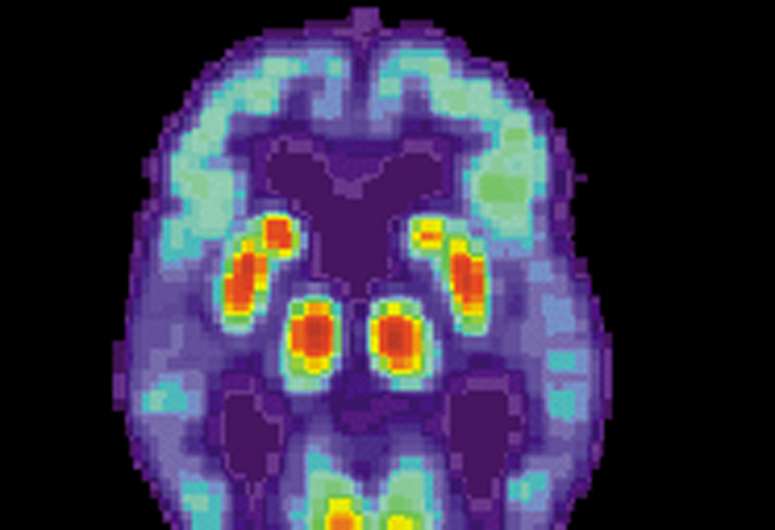Researchers find gene reduces benefit of exercise in preventing Alzheimer's

In the first study of its kind, neuroscience researchers at Rutgers University–Newark's Center for Molecular and Behavioral Neuroscience (CMBN) have found that an important genetic variation associated with Alzheimer's disease regulates the ability of physical fitness to help ward off the condition in African Americans, who are twice as likely to suffer from the disease as white Americans. The results of this Externalnew study, funded by a five-year grant to Professor Mark A. Gluck from the National Institute of Health's National Institute on Aging (NIA), was recently published in the journal Frontiers in Aging Neuroscience.
Gluck, a neuroscientist who has been studying Alzheimer's disease and other memory disorders for decades, led the study along with his postdoctoral fellow, Neha Sinha, and research assistant, Chelsie Berg. Gluck is Director of the ExternalAging & Brain Health Alliance at Rutgers University-Newark, which fosters interdisciplinary and university-community collaboration to expand our understanding of aging, brain health, and the prevention of Alzheimer's disease, especially in populations with elevated risk for dementia, such as African Americans.
Scientists have long known that modifiable behaviors such as diet, exercise and physical fitness reduce the risk, or delay the onset, of Alzheimer's disease and other forms of dementia. According to Gluck, what is new about these findings is that "the presence of a risk variant of the ABCA7 gene appears to diminish the ability of physical fitness to increase cognition and memory abilities in older African Americans, thereby indirectly increasing their risk for Alzheimer's disease. This may be an important contributing factor to the disparities in rates of Alzheimer's disease among African Americans."
For their recent study, Gluck and his team studied 100 healthy African Americans from Newark, age 55 to 86, with an average age of 67. The group included 20 men and 80 women, some carrying the non-risk gene variant, while others carried the higher-risk variant. In addition to completing several tests of cognition, including tasks that measure learning and memory ability, all participants were given a thorough assessment of their physical fitness, especially their cardiovascular, or aerobic, endurance.
For carriers of the non-risk genotype, higher levels of physical fitness were significantly associated with fewer cognitive errors, while there was no noticeable relationship between physical fitness and cognition for those carrying the risk genotype.
It has long been known that being physical fit and exercising regularly can reduce the risk for cognitive decline and Alzheimer's disease. Moreover, increased levels of aerobic activity have also been shown to increase the physical size of the hippocampus, a key brain region for learning and memory which is the site of some of the earliest signs of Alzheimer's disease in the brain. What is new and exciting about these recent findings from the Rutgers-Newark team is that they have shown, for the first time, that the link between physical fitness and improved cognition can be modulated by a genetic risk factor for Alzheimer's disease in African Americans.
For Gluck and his team, the implications of these findings are significant for several reasons. "First, they provide us with a novel insight into one reason why African Americans may be at higher risk for Alzheimer's disease as compared to white Americans," says Gluck. "As such, these finding could lead to a deeper understanding of the unique pathways to Alzheimer's disease that put African Americans at higher risk, and thus point us towards new approaches to therapeutic or behavioral changes that could reduce the burden of Alzheimer's on African Americans. Second, these findings provide us with a better understanding of the mechanisms by which physical fitness can improve and strengthen the brain. Because so few African Americans have participated in aging and Alzheimer's research in the past, we know far too little about race-specific risk factors for Alzheimer's disease. Recruiting more African Americans to participate in this research is necessary if we are going to advance the science of aging to benefit everyone."
An important limitation of the current study, as Gluck notes, is that "these results are based on a comparison, at a single point in time, between different people of varying levels of physical fitness. What remains to be established is whether or not variations in the ABCA7 gene can affect the degree to which adhering to a regular program of physical exercise can improve cognition in an individual over the long term." To answer that question, Gluck and colleagues, with financial support from the New Jersey Department of Health, have partnered with local churches, senior centers, and federally-subsidized housing sites to study how cardio-fitness dance classes can improve cognition and brain function in older African Americans. The results of this ongoing study may help identify what behavioral and lifestyle interventions can reduce the high burden of Alzheimer's disease.
More information: Chelsie N. Berg et al. ABCA7 Risk Genotype Diminishes the Neuroprotective Value of Aerobic Fitness in Healthy Older African Americans, Frontiers in Aging Neuroscience (2019). DOI: 10.3389/fnagi.2019.00073


















